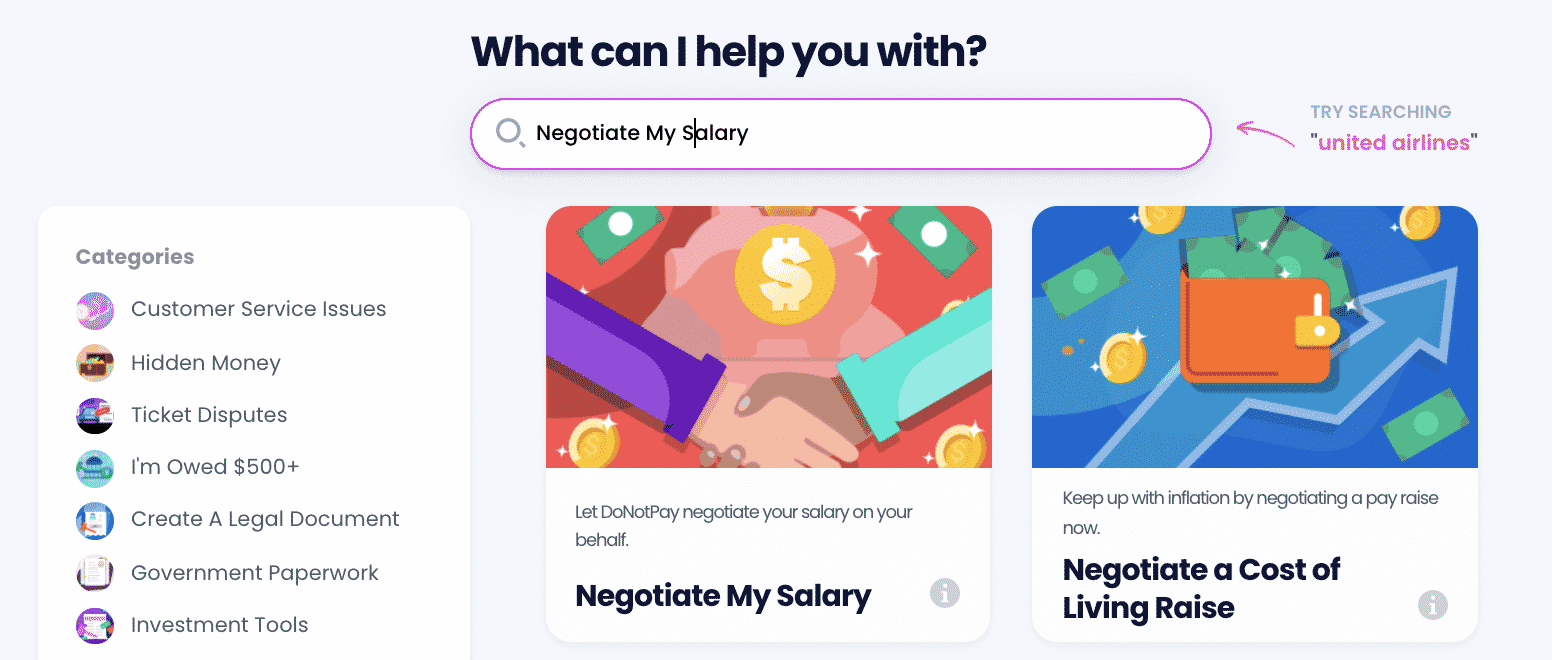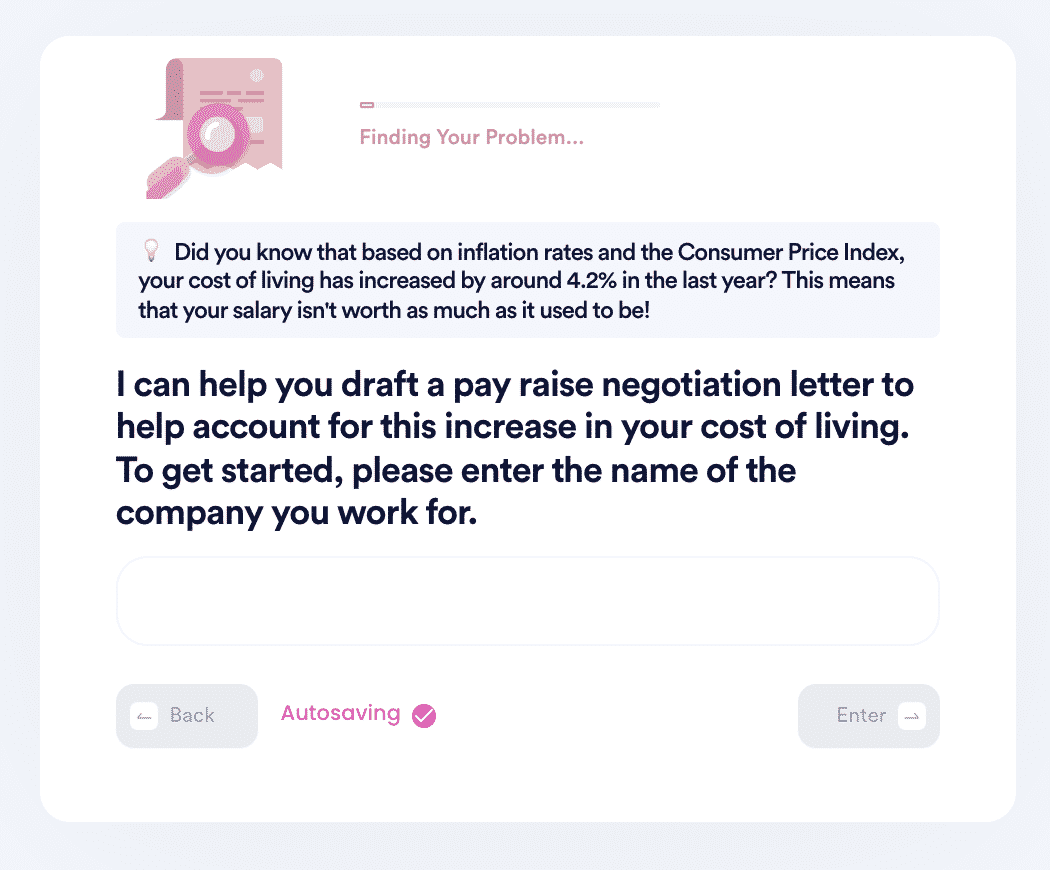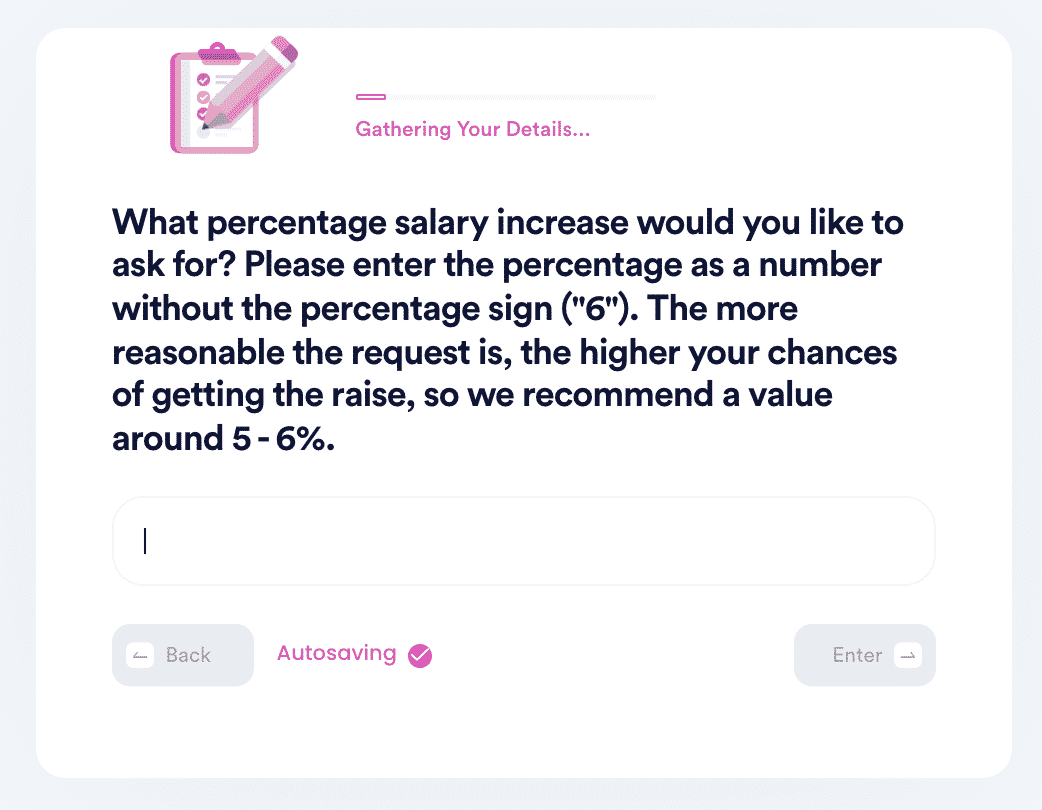How to Negotiate Your Nonprofit Salary
can be a nerve-racking process. As with any other type of negotiation, seeing the other side of the table is crucial and will eventually result in a better outcome for all involved. Basically, on top of vacation time, health benefits, and bonuses, a nonprofit company can also boast of its peculiar mission as part of its attraction to its customers.
Although an organization may not fully have total flexibility during negotiations, most nonprofit organizations have begun sound methodology like external compensation consultants, independent boards, as well as market surveys, which help to set the overall salary negotiation.
If you're ready to negotiate your nonprofit salary, do not worry. DoNotPay has got you covered. We can also help you know when to ask for the raise, how to ask for a raise via email, how much of a raise you should ask for, as well as how often you can get that raise.
How to Negotiate Your Nonprofit Salary
To negotiate for a nonprofit salary, here are some tips:
| Know the Value or Market Rate for Your Job | All negotiations concerning salary should begin with research. Sites like Glassdoor, headhunters, and even PayScale, who work for nonprofits, might be helpful. |
| You Should Understand the Philosophy and Charity's Financials | If you're applying for an executive-level post, you must be able to see what those key employees have earned. |
| Break the Taboo and Ask What They Earn | Salary tax and survey forms are one thing, though personal info can also be helpful. Begin a conversation with someone you are working with within your role organization or peer employee and ask the number on the person's paycheck. |
| Don't Let the History of Salary Hold You Back | You're not obligated to answer any questions in an interview. Do not be afraid to change the topic and ask whatever the charity has budgeted for the job and how it arrived in that range or figure. |
| Negotiate for Other Benefits Also | Negotiate about a thing that helps you do your job better, like tuition for courses or more resources in your department, training programs, or conferences. |
How Often Should You Get a Nonprofit Salary Raise?
The topic of money is never comfortable. It can even be more uncomfortable if you ask your superior for a raise. While the situation of every person is different, there are some typical milestones in which you should or can ask for a raise. Generally, as a thumb rule: it's common to get a raise every year you work for an employer. A few times, it may be worth asking for a raise more than once a year if you are overseeing a team or working longer hours or if you have recently been promoted to a new position with more responsibilities.
Reasons to Get a Nonprofit Salary Raise
Companies usually give raises to employees who provide value to the company, work hard, and show potential for future growth. Before you ask for a raise, check the following reasons to get a raise:
1. You Do More than What Your Job Requires
One of the most significant arguments for getting a raise is often your work performance. Going the extra mile than what your job requires includes helping your coworkers and taking on additional responsibilities.
2. You Are Reliable
Companies mostly look for employees they can trust to do their job well without micromanaging them; they want employees they know can consistently deliver what is asked of them.
3. You Show Initiative
Generally, companies like employees who they can trust to do things without being asked to do. You might take the initiative by constantly looking for more projects to work on, asking how you can help others, or requesting more projects. You can also show initiative by developing and presenting a solution to the senior management about an issue around the company that you have noticed.
How to Negotiate Nonprofit Salary Over the Phone/Email
If you are looking for how to negotiate a nonprofit salary over the phone, here are some tips:
- Do not lock into a number before seeing the real deal.
- Prepare; always know exactly what you want
- Remain respectful and grateful before jumping into negotiation
- Reduce emotional reactions
- Do not decide on the spot
- Ask questions that you have regarding the offer
- Get something in writing if you do not reach an agreement; the progress done on the call should be in a documented written form.
If you are planning to negotiate your salary over email, here are a few tips:
- You should be polite but straightforward
- Concerning your expectations, be upfront
- Back up your expectations with relevant examples and average salary data
- Be open to more negotiations, but know your limits
How to Negotiate Your Salary With Donotpay
Below are some steps to with the help of DoNotPay:
- Search “negotiate my salary” on DoNotPay.

- Enter the name of your company and the industry you work in, so we can find the right wage statistics for your role.

- Answer a series of questions regarding your qualifications and achievements, relocation expenses, and other job offers if applicable.

- Enter the new base salary you would like to request.

What Else Can DoNotPay Do?
Alongside negotiating your salary, we can also help you with the following:
- Applying for clinical trials.
- Contesting parking tickets.
- Getting revenge on robocalls.
- Dealing with issues of a credit card.
- Freeing yourself from spam mail.
For more info on our services, today!


